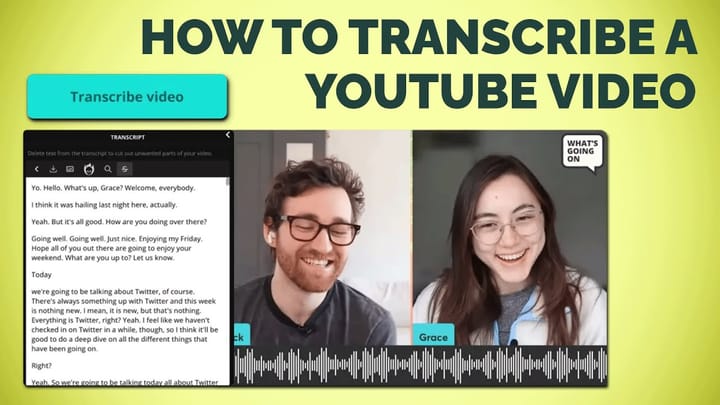Meet The Director Who Made a Documentary about 'Tiger King' Joe Exotic Years Before Netflix
Director J.D. Thompson talks about making the first documentary on Oklahoma zookeeper Joe Exotic and how it led to his involvement in the hit Netflix series "The Tiger King."
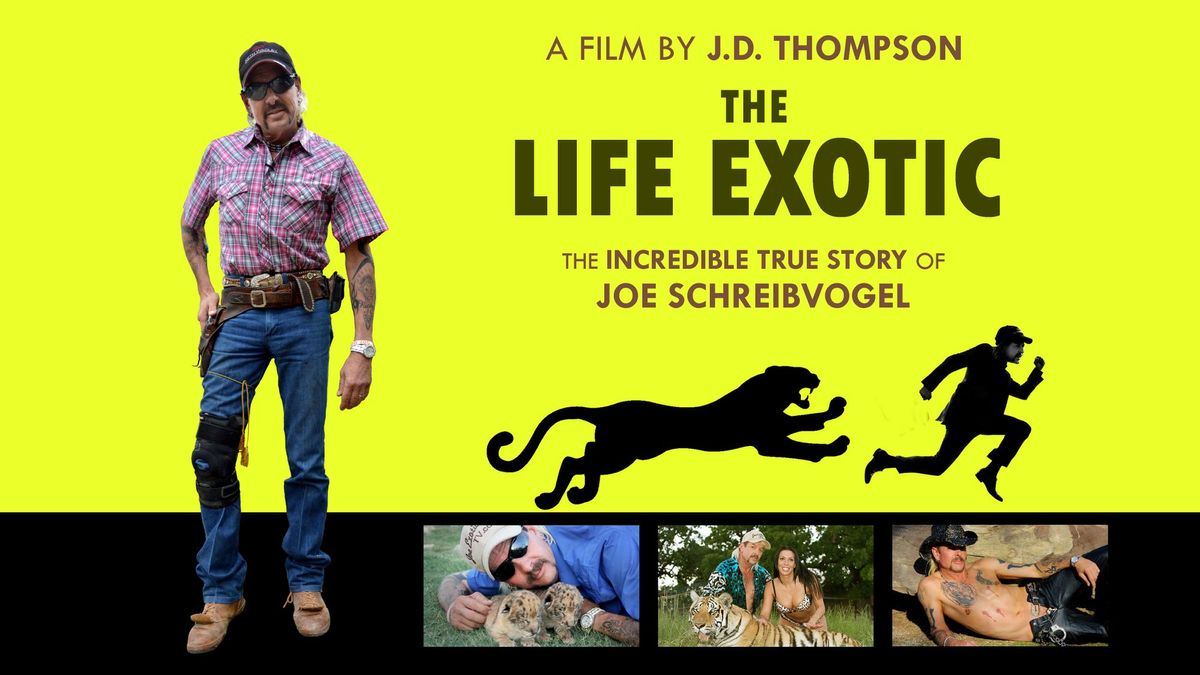
Filmmaker and Oklahoma-native J.D. Thompson quietly uploaded his independent documentary The Life Exotic: The Incredible True Story of Joe Schreibvogel to YouTube in 2018. The hour-and-a-half long documentary took audiences inside the gates of the The Greater Wynnewood Exotic Animal Park for an up-close look at controversial zookeeper Joe Exotic.
That was years before the federal trial. Before the Netflix series. And before millions of viewers around the globe found themselves infatuated by the uniquely American story of the "Tiger King." Thompson's film was shot on a $1,500 budget over the course of one week in 2016 and shows a different side of Joe as he navigates a full working day at the now-infamous zoo.
The decision to release the documentary for free led to Tiger King executive producers Eric Goode and Rebecca Chaiklin finding it on YouTube and asking Thompson to compose original music for the series.
I had a chance to sit down with J.D. to discuss The Life Exotic, composing music for the Netflix documentary, and what it's like to be the first one to tell the story behind a worldwide phenomenon.
The following interview with J.D. Thompson has been edited and condensed by Robert Martin.
Tell me a little about yourself - how did you first get into creative work?
I'm originally from Oklahoma and both of my parents were musicians. My mother is classically trained, she was a ballet dancer and played with the Oklahoma City symphony for a little while. My dad played in a country band and taught me a totally different approach to music.
In my early 20s, I had enough of dead-end jobs and sold all my stuff to buy a ticket to Ireland. I decided to live in Europe and figure it out as I go. I was busking on the street to make extra money for a few years and was randomly fortunate enough to get spotted by a Grammy Award winning producer who was in Ireland on vacation. Within a couple of weeks I flew out to Malibu to record an album.
I got disillusioned with that relatively quickly and decided to reinvent myself and
move home to Oklahoma.
"I saw him as some kind of bizzaro Nietzschean Übermensch."
What made you want to make a documentary about Joe Exotic?
A tornado hit Oklahoma in 2014 and I heard on the news that it had possibly knocked down the fences at the GW Zoo in Wynnewood and there's up to 300 tigers on the loose. That blew my mind. I looked it up and then I saw Joe Exotic's YouTube channel and thought 'holy crap I have to find out more about this dude'.
So I called him up and he said if you want to come down and shoot that'd be great. The only thing he asked was that I don't burn him with a hit piece. For being who he is, he really achieved several astounding feats. I saw him as some kind of bizzaro Nietzschean Übermensch.
I wanted to figure out a way to let it all speak for itself without doing these sort of he said, she-said type of interviews. I didn't even know anything about Carole Baskin or any of that business when I first went to the park.
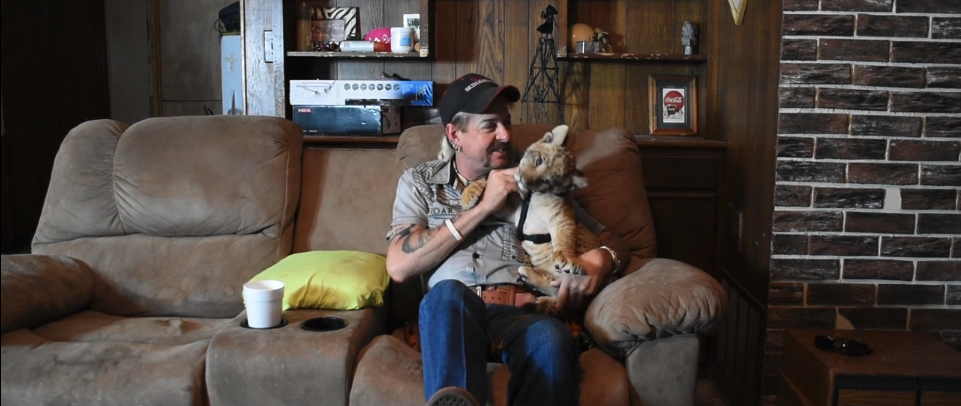
Tell me about your experience filming the documentary with Joe at the GW Zoo.
They just let me do kind of whatever I wanted to. I was there for about six days without a crew and basically had to do it all myself. While I was there, Joe was a gentleman and everyone was pretty normal considering the subject.
We got to go into Joe's house, and at the time, he had a full grown lion right outside the house which was pretty intense. He had four tiger cubs living in the house too. These are small animals but they've still got razor sharp claws and teeth.
I was in the middle of an interview with Joe and there was a tiger literally at my feet like digging into my legs trying to crawl up my pants while I'm trying to conduct an interview. It was completely nuts.
The park was a different place when I was there - it went downhill fast.
"I decided I'm just going to make it the best I can make it, give it to the world for free, and move onto the next thing."
How much work went into the documentary after you filmed everything?
That was the hard part, we had so much footage. I edited it myself and probably spent at least three to four months on it.
What did Joe think of The Life Exotic?
I sent it to him and he loved it. He said 'We're going to raise money and rent out the whole Cox Center in Oklahoma City and have a big premiere.'
I never heard about it again.
Next thing that happens, I get a notification in my email that he has uploaded my documentary online. That was the only stipulation I gave him, not to upload it on the internet, because you can't enter a documentary into a film festival if it's been released anywhere. He uploaded it anyway and cut my name out of the credits.
That was when I realized who I was dealing with.
I had to get my attorney to contact YouTube and they basically told Joe we'll shut your whole YouTube channel down if you don't take the video down.
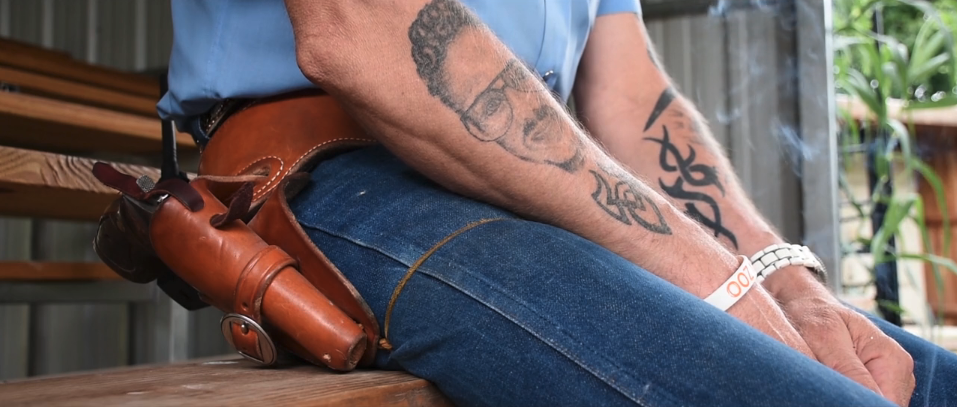
What kind of response did the documentary get from audiences?
It placed at several film festivals in Europe. In Ireland, they couldn't believe it. A lot of people thought it was made up. For us in America, someone shooting guns and being eccentric and even having tigers, yeah it's weird.
But when you live in a country where you can't have exotic animals or assault rifles period - it was just so overwhelming and over the top. I literally had people ask me how I got them to do this.
How did you make the decision to release The Life Exotic for free on YouTube?
In so much of this world, you spend years just trying to get someone to give you the greenlight just to start a project in the first place. Then you spend years making the thing, years editing the thing, and years marketing the thing. All of a sudden - you spent ten years on one project. I'm 35 and want to make more than three documentaries in my life.
So I decided I'm just going to make it the best I can make it, give it to the world for free, and move onto the next thing.
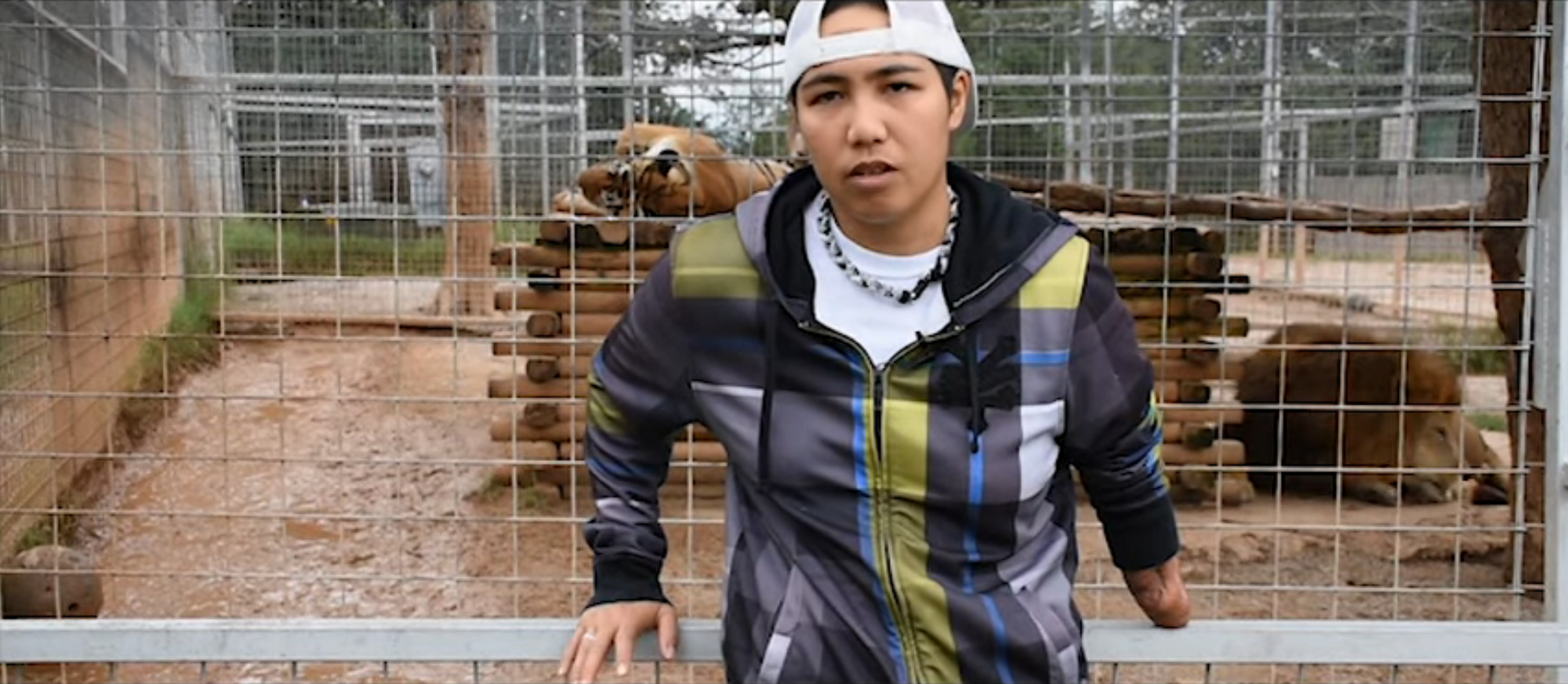
When did you first hear that Netflix was producing a documentary about Joe Exotic?
It was the late fall of 2018. The series' creators Eric Goode and Rebecca Chaiklin came to me and said they're working on a new documentary that picks up where I left off and then they invited me to be a part of it.
How did you get involved in The Tiger King and what work did you do on the documentary?
I spent a lot of time going back and forth with Rebecca talking about the story and Joe. Executive producer Chris Smith and I emailed back and forth for hours and hours about all kinds of things and it was through those conversations that they said 'Hey, why don't you do the music?'.
I was really happy. They didn't have to include me at all. They licensed some of my footage for 3-4 episodes, and then my music is in almost every episode. It couldn't be better, I basically got to do exactly what I wanted to do with my documentary AND I got to be a part of the Netflix documentary.
I wouldn't have been able to do that if I hadn't given the documentary away for free on YouTube.
What was your process for composing original music for The Tiger King?
They wanted it to feel like it lived in Oklahoma. They wanted the music to fit the atmosphere of the place.
I flew to Oklahoma and pulled together some really cool country session players that I've known for a long time. One of the guys, Kenny Davis, is a pedal-steel guitar player and he's an honorary member of the Memphis Mafia - meaning a connection to Elvis. I brought those guys in to do the color instruments and I wrote the songs. I played all the guitar and played a lot of the mandolin.
We recorded it live on two-inch tape rather than digital. It's a lot more expensive, but it just creates an ambience that's hard to fake which is why I think they paid the premium.
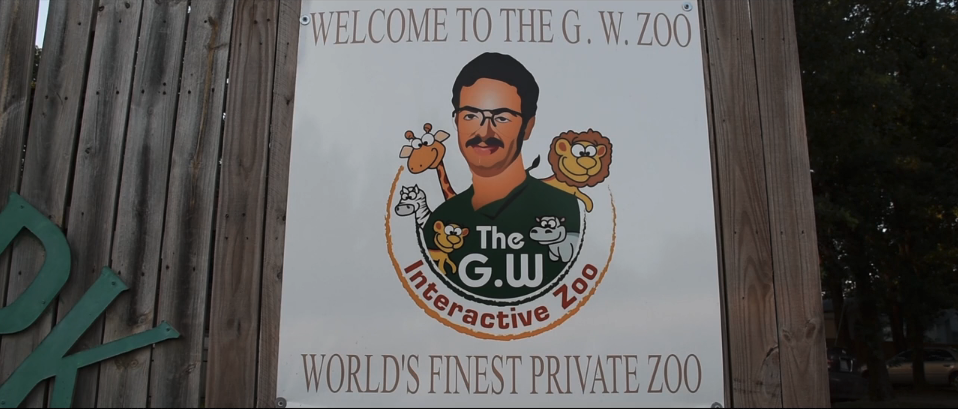
As someone who spent a lot of time telling this story, how did you feel about the Netflix documentary?
I think it did a pretty good job of showing the essence of that world. I don't think all the facts were necessarily as fleshed out as a deep dive journalism piece could have done, but that wasn't the goal. It was entertainment.
I gotta give them credit where credit is due. To take a story that is that convoluted with that many people in it and to weave it together in a coherent narrative that is really engaging - it was incredible.
What is the process of licensing content to Netflix?
Rebecca and everybody were really amenable to everything I asked for. I have never been involved in an easier deal. It went slow, but there was no haggling or ugly bartering. None of that kind of stuff that sometimes happens when you aren't particularly well known.
"They're hoping that I'm looking in some crystal ball for the story that's going to blow up and make someone a billion dollars in five years."
How has Tiger King impacted The Life Exotic on YouTube? Are more people discovering the documentary now?
I think before the Netflix series came out, it was up for about a year and I think I had somewhere around 4,000 views. Today it has over 500K. That just goes to show you the power of distribution.
Since the Netflix documentary, I have been contacted by producers, directors, and studio people from all over. They're hoping that I'm looking in some crystal ball for the story that's going to blow up and make someone a billion dollars in five years.
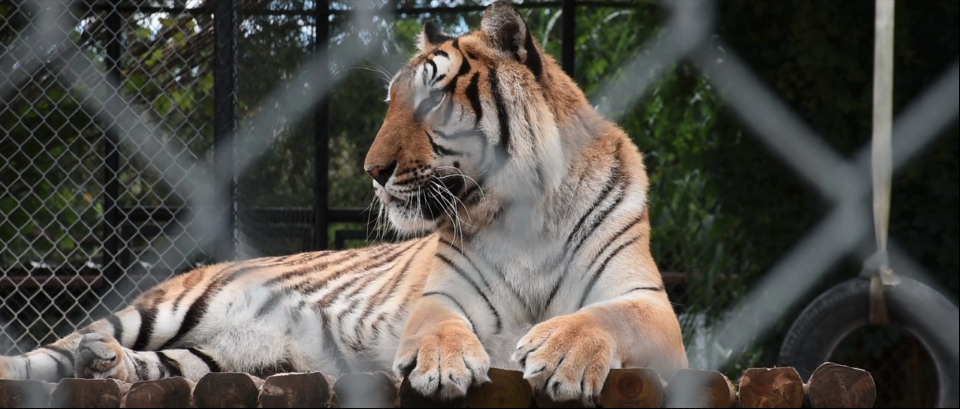
You mentioned you are working on a new documentary - what’s next?
Tentatively right now, the project is called In the Shadow of the Gods.
It centers on the fact that the fastest growing religion in northern Europe is the religion attributed to the vikings. It's the pre-Christian Pagan religion that was practiced a thousand years ago and it's been revived.
What advice would you give to small or independent creators trying to produce their own projects?
Finish what you start and make sure people know it exists. Everybody in the world has a great idea, but you have to prove that you can execute.
Don't fall for the hype that you have to spend an exorbitant amount of money to make a beautiful video. Choose something that is interesting to you and keep working on it until you're happy with it, but get it done.
Create content faster with Kapwing's online video editor →


